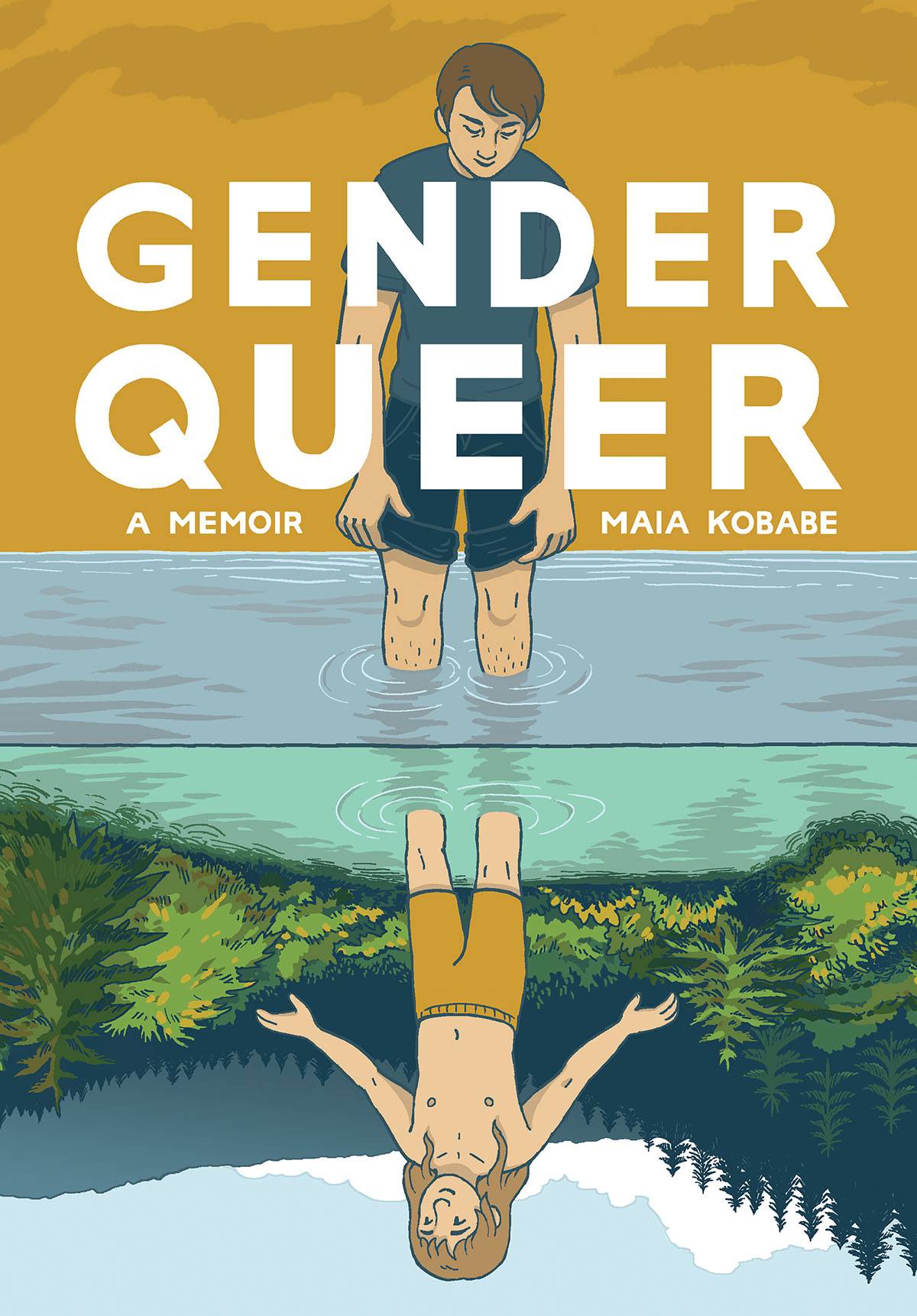
The book had previously been approved for sale, but another court ordered this decision to be reassessed after a conservative activist challenged the ruling.
Controversy over Gender Queer has extended to all levels of politics in the United States, with the book often being accused of being child porngraphy….all based on a literal handful of panels in a 240 page memoir. The single panel which is accused of “promoting pedophilia” is based on a scene from Plato’s Symposium, and drawn in the style of an ancient Greek vase.
In Australia, activist Bernard Gaynor organized a protest against the book, with a letter writing campaign, however the three member review board found that despite the size of the protest, it could not be “assumed that this cohort is representative of the broader community’s views”.
The board also downplayed the claims that the book is pornographic:
The board found descriptions and depictions of sexual activity are an integral part of the story on the author’s struggle to understanding gender identity and sexuality, and the sex is highly stylised and containing little or no realistic detail, as well as infrequent.
“The impact of the nudity is no higher than moderate and can be accommodated at the unrestricted level,” the board said.
The board said the Plato’s Symposium image is “highly stylised”, does not depict sexual activity in a detailed or realistic manner, and it is not possible to determine the age of the two male figures in the image.
“The most that can accurately be said is that the panel contains a depiction of an older-looking male and a younger-looking male.”
Gender Queer was originally published in the US in 2019 as a book for adults, and has won numerous awards and wide praise for being a sensitive and thoughtful exploration of Kobabe’s journey of gender identity. (Kobabe uses e/eir pronouns.) It’s also been challenged or banned 38 times, the ALA reports, making it the second most challenged book in the US in 2024. With queer-themed books under fire as never before in the US, a small overseas victory is a reminder that when people actually read the book, the overblown claims about its content are shown to be fear mongering.
But the battles continue. Back in the US, Gender Queer, Blankets and Fun Home were banned by Radnor High School in February, after a parent accused them of being “child pornography.” However, the community spoke out in favor of the books – among the most critically acclaimed graphic novels of the century – and the school board reversed its decision.
News quickly circulated about the book banning just after it happened, and the community at large was not happy with the decision. Parents and students wrote letters to school officials demanding that they reverse the book banning.
On Tuesday, Radnor’s school board held its regular public meeting, and it’s fair to say that attendance was a lot better than normal. Impassioned parents, former students, and other community members got up one after the other, telling the board why banning the books was the wrong move.
Kobabe’s book continues to be a lightning rod for controversy – for instance a small town in Massachusetts became embroiled in a lawsuit after a high school teacher quit when the night custodian accused her of having a copy of the book in her classroom, leading to a police search. In Oklahoma, where both Gender Queer and Mike Curato’s Flamer are outright banned from school libraries, a teacher sued the state Secretary of Education for libel…and lost. In Monroe County, Georgia, some activists actually proposed “defunding the public library” because it contained Gender Queer, before officials realized that was a “last resort.” The list goes on and on.
And yet book bans also have the reverse effect of making book more popular, as Popverse recently reported. A study found that bans generally increase sales of the controversial material:
The study, entitled Book Bans in American Libraries: Impact of Politics on Inclusive Content Consumption, revealed some startling findings akin to the Streisand effect. Banned books, on average, had a 12% increase in circulation in American libraries compared to unbanned, similar books after a ban on that title was announced. The researchers also found that social media played a significant role in bolstering circulation of banned material, with banned books with “higher visibility” online getting circulated more often at libraries.
A victory here, but a drawn out court court battle there…the controversy continues. But for the moment, you can buy Gender Queer in Australia so let’s celebrate the moment.
Source link